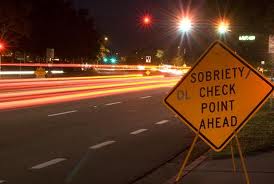 The California Supreme Court set forth criteria for DUI checkpoints to ensure they are in compliance with the Federal and California’s State Constitution and to minimalize the intrusiveness of the stop in Ingersoll v. Palmer. The following is the last four of the ambiguous guidelines.
The California Supreme Court set forth criteria for DUI checkpoints to ensure they are in compliance with the Federal and California’s State Constitution and to minimalize the intrusiveness of the stop in Ingersoll v. Palmer. The following is the last four of the ambiguous guidelines.
5. Time and duration. The time of day and how long the DUI checkpoint lasts bears on the intrusiveness to the motorist. Law enforcement is expected to use good judgment in setting the times and duration, considering effectiveness and safety.
6. Indicia of official nature of roadblock. The roadblock should be highly visible with warning signs, flashing lights, adequate lighting, and official police vehicles and officers in uniform.
7. Length and nature of detention. Motorists should be detained for a minimum amount of time. This brief encounter should allow the officer to question the driver to look for signs of intoxication. If there are signs of impairment, the driver can be asked to move to another area for sobriety tests. This has to be based on probable cause and principles of detention and arrest would apply.
8. Advance publicity. This was a requirement, but as of People v. Banks advanced publicity is just another factor to be considered.
The foregoing criteria are just guidelines. If law enforcement fails in one or more of these areas, the checkpoint is not automatically deemed illegal or unconstitutional. A skilled attorney may argue to the court such failure rises to the level of a constitutional violation. If this motion is won, your DUI case may be reduced or even dismissed.
Part I was posted on November 1st, 2010.
If you were charged with drunk driving in San Diego County after going through a DUI checkpoint, call The Law Offices of Susan L. Hartman for help. We are an exclusively DUI defense firm. We evaluate the particular facts of each case, raising any viable defenses, including issues with DUI stops at a checkpoint. We offer free, confidential consultations so you can learn about your rights and your legal options at no charge. Call us today at 619-260-1122 or use the “Contact Us” form on this page.
 San Diego DUI Lawyers Blog
San Diego DUI Lawyers Blog

